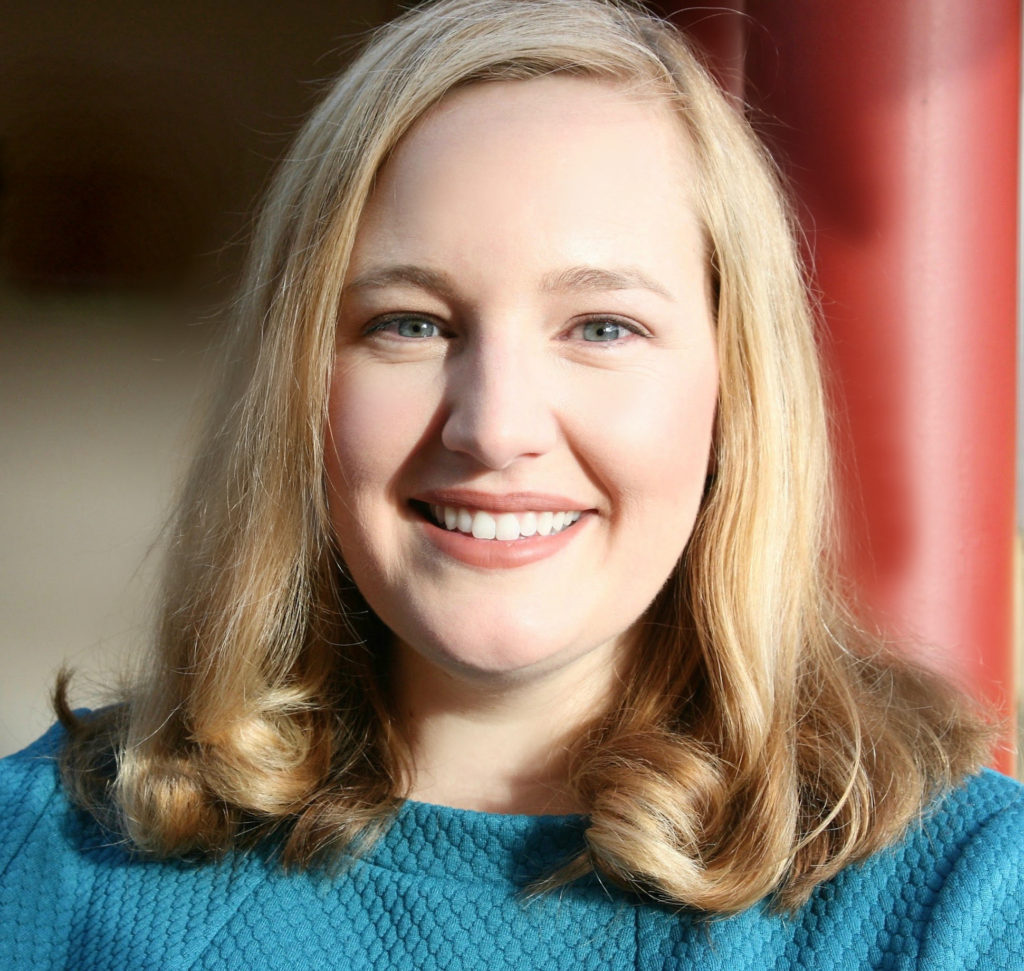Why Roys Is Wrong On School Choice
And what this may say about the Democratic Party.
A recent Journal Sentinel Politifact quoted comments that candidate for governor Kelda Roys made in an interview with Madison radio station WORT:
…frankly, the voucher schools that have proliferated in places like Milwaukee and Racine — and now we’ve got statewide voucher expansion — are a problem, but we also have to address charter schools because there are a lot of private charters. And in fact, our current superintendent of public instruction sought and received the largest charter school grant in the country from the Trump–DeVos administration to start new charter schools in Wisconsin.
Roys, one of eight candidates remaining in the August primary for Democratic candidate for governor, made these comments in response to a Department of Public Instruction press release announcing the receipt of several charter school planning grants. Presumably she made them in hopes of knocking down support for State Superintendent of Instruction Tony Evers, who is the leading candidate in the Democratic primary for governor, according to current polls.
Politifact listed several problems with Roys’ comments. One is that her comments reflected confusion between two distinctly different programs, vouchers and charters. Combining the two, she came up with a non-existent hybrid, the “private charter.”
As explained on the Milwaukee Public Schools web site:
A charter school is a tuition free public school created on the basis of a contract or “charter” between the school and a local school board or other authorizer. A charter school has more freedom than a traditional public school in return for a commitment to meet higher standards of accountability.
Milwaukee has three active charter school authorizers: the City of Milwaukee, UW-Milwaukee, and MPS. Most charter schools have boards of directors that are responsible for the management of the school, including the hiring of employees.
By contrast, schools participating in state voucher programs remain private schools. Essentially the vouchers are state scholarships that allow students to attend certain private schools without paying tuition, much like Pell Grants at the college level.
One requirement placed on both charter schools and voucher schools concerns admissions. If there are more applicants than spaces, they are both required to hold a random lottery.
Most Milwaukee schools fit into one of three governance models: conventional public schools, private schools with and without vouchers, and charter schools. Is one or another most effective?
The Department of Public Instruction annually issues “school report cards” rating the performance of schools in Wisconsin. In these, a number of different measures are combined to calculate “overall accountability scores” for most schools. Based on these scores, the DPI assigns one of five ratings to each school, ranging from “Fails to meet expectations” to “Far exceeds expectations.” The graph shows the average accountability scores for the three types of schools located in Milwaukee.
By this measure, on average charter schools have the best performance, MPS conventional schools the worst, with vouchers falling in the middle. However, averages ignore the huge variation among schools in each category. Being a charter school or a private school is no guarantee of success.
Still, if Roys’ comments are interpreted as a call to rid the world of vouchers and charters, the result would be removing some of Milwaukee’s most effective schools and lowering the average outcome of the Milwaukee education system as a whole.
At points, Roys echoes the man she hopes to replace. Charter school planning grants are bad, she implies, because they come from the “Trump-DeVos administration.” This ignores the active role the Obama administration played in charter school planning grants.
In a similar move, Gov. Scott Walker rejected Medicaid expansion money, to avoid being associated with the hated Obamacare, a decision that has cost Wisconsin taxpayers $1 billion so far. Not mentioned, of course, is that the Walker scheme only worked because those forced off Badgercare were able to buy subsidized coverage on the Obamacare exchange.
In recent years, enrollment in conventional Milwaukee public schools has dropped from around 100,000 to under 70,000. Part of the cause was demographic, reflecting shrinking birthrates. But increased choices, mainly because of the growth of charters and vouchers, have also played a role.
Democratic opposition to charter schools has hardly been universal. Most notably, the Obama administration promoted charters as one tool to overcome urban poverty. Just recently, the New York Times’ David Leonhardt reported on evidence that the post-Katrina strategy of converting schools in New Orleans to charters has been successful.
Still, I continue to run into liberals who insist that all charter and voucher schools are failures. Recent research about the power of ideology over evidence suggests that this should not be surprising.
In one such study, people most skilled in making use of quantitative information were most able to correctly interpret data when it was presented as the result of an ideologically-neutral study—a study of a new skin-rash treatment. However, when it was presented as the result of a polarizing issue—such as a ban on concealed carry of guns—those most skilled in calculating did a worse job of interpreting the results when the data seemed to contradict their belief than those who were less skilled.
Other recent research also comes to similarly depressing conclusions. More information often ends up reinforcing false beliefs.
Whoever wins the crowded Democratic primary, he or she will be running against a governor and a political party that has successfully rejected evidence that doesn’t support its world view. This includes its rejection of the science that shows global warming, the belief that the road to prosperity is through reducing taxes on wealthy people or that freedom is inversely proportional to the size of government.
There is danger of Democrats imitating Republicans, by refusing to consider evidence that may run counter to the interests of part of the Democratic base. Assuming that one of those candidates is successful, that person will be confronted by the challenge of educating children who are growing up in poverty, may live in dangerous neighborhoods, and may have faced multiple evictions and other traumas.
The increasing rejection by the Republican Party of evidence that may contradict its beliefs is an unhealthy trend both for that party and the nation. It would be particularly dire if Democrats followed in the same direction.
Data Wonk
-
Life Expectancy in Wisconsin vs. Other States
 Dec 10th, 2025 by Bruce Thompson
Dec 10th, 2025 by Bruce Thompson
-
How Republicans Opened the Door To Redistricting
 Nov 26th, 2025 by Bruce Thompson
Nov 26th, 2025 by Bruce Thompson
-
The Connection Between Life Expectancy, Poverty and Partisanship
 Nov 21st, 2025 by Bruce Thompson
Nov 21st, 2025 by Bruce Thompson
























In my view article is not completely fair and Roys may deserve some credit, despite Politifact, for coining “private vouchers” as a description of some charter schools, whose chartering agency or board of governors makes viewing them as public schools quite suspect. Most Wisconsin charter schools are run by public school districts and subject to frequent review, so they should be regarded in a distinctive class. But the legislation is slippery enough than privateers have stepped into the so-called charter movement.
Good analysis by Bruce.
Nicely misleading graph.
Visually, you’re led to believe that, given the vertical space, charter schools are twice as effective as MPS schools.
Why doesn’t the graph go from ONE to ONE HUNDRED? Simple answer: To mislead.
The actual difference is only 10%. And keep in mind, this is a single metric.
If you have facts on your side, why do you need to skew your presentation?
Charter schools do a better job, and anyone, regardless of political view, would be wise to support them for the betterment of students and our communities.
The biggest lobby in the state is for public money for private schools.
What are the number of I.E.P. students in mps vs. these other schools? Unfair to cpmpare when some of the schools can skim the students they want.
I like to say, if you want to study Jesus in school, do it on your own dime
Based on the many young and older teachers I know, Charters are much like regular and specialty MPS
schools in that they vary highly depending on parental involvement, funding, and leadership. Vouchers schools
have the weakest accountability, and many are almost entirely MPS funded students with no private
students at all, and are almost devoid of public oversight.( In this sense they are like private prisons: We pay, but have no say!
Not worried about semantics. I am OK with the position that Charters should be held to high standards of
accountability and transparencey, as well as private vouchers.
In my 40 plus years working in both MPS and charter schools, I have concluded that what are designated as “high performing” schools, most always have done a good job of recruiting the parents that are strongly engaged in their child’s education. I don’t think you can compare choice schools to public schools since choice schools. Choice schools can terminate the enrollment of a child who could need extra help or support. They can also enroll students with documented special education needs and legally not provide the educational services they are entitled to under the Federal Law.
Kelda Roys will never allow the truth to get in the way of a cheap shot she is making on a fellow Democrat in a primary. Just ask Mark Pocan. It would be nice to see Kelda take early retirement from politics after she losses this primary by double digits (as she did in her scorched earth primary against Pocan).
What a misleading graph and misunderstanding of the system. Charter schools and voucher programs are what make MPS schools worse. Keep pulling funding from schools that need it most to prop up “high performing” schools instead of trying to fix normal public schools.
Maybe consult someone in education research before spouting off such an uninformed article.
Bruce, what is the source for your graph? Admittedly I’m not a statistician, but if you are writing for me I would appreciate the background data that supports a derivative graph. Which DPI reports did you use to build the graph?
While facts should not be political, the weight we give to some facts over others is political, human, fraught. But we should be able to understand those weights, especially in a derivative graphing. I’d appreciate the detail, if you would, please.
Oh, by the way, I did find a footnote in dpinr2017_92.pdf that points to my frustration with these analyses.
* Some schools in the Milwaukee, Racine, and Wisconsin private choice programs are not rated due to
a lack of data. Schools in those programs also had the option of receiving a Choice Student Report
Card and an All Student Report Card. For 2016-17….
So, if a school district or school can opt out of analysis by the DPI, I’d wonder Why they opted out? And, does not an Opt-Out stoke the average?